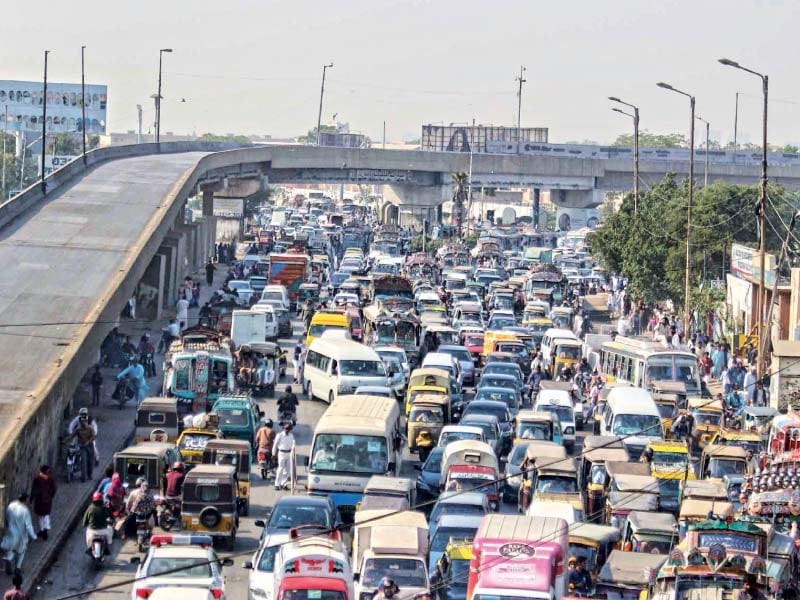ISLAMABAD: Pakistan needs integrated strategies, policy reforms, and active stakeholder engagement to address problems related to urban transport management, said an expert.
In Pakistan, urban transport planning faces a range of complex challenges. From traffic congestion and inadequate public transportation to limited pedestrian and cycling infrastructure, these issues hinder efficient and sustainable mobility.
The majority of Pakistan’s urban population is concentrated in eight cities, including Karachi, Lahore, Faisalabad, Rawalpindi, Multan, Hyderabad, Gujranwala, and Peshawar.
“This massive flight of people from the countryside to urban centres is resulting in an increasing dearth of essential services such as clean drinking water, schooling, healthcare, and urban transportation, putting the policymakers in a quandary,” said Mian Rajan Sultan Peerzada, President of Association for Development of Local Governance (ADLG), while talking to WealthPK.
“There is no structural capacity in the existing road network to accommodate the increasing number of vehicles that use it on a daily basis,” he pointed out.
Additionally, he said, greater use of fossil fuels has resulted in a rise in air pollution and environmental damage.
In densely populated cities all over the world, public transportation systems are heavily reliant upon a wide range of modes of transportation, such as walking, biking, and buses.
“As a country with limited resources, we should not depend on the luxury of a private-vehicle-dominated transport system,” Peerzada emphasised.
“Along with China’s investment in Pakistan, great support and progress were continuously seen in infrastructure sectors. When it comes to infrastructure, one of the top items that stands out is the public transport sector,” he mentioned.
Peerzada said Pakistan needs to support these large investments with a cohesive policy and planning framework to transform the transport sector into a modern, sustainable and effective one, helping businesses to grow, empowering the creation of new industries, and supporting the creation of quality jobs.
A spokesperson for the Transport Planning Unit (TPU) under the Government of Punjab told WealthPK that the organisation works to create a prosperous and well-connected society by developing and implementing safe, fair and sustainable transportation systems.
“Through sustainable transport solutions, we strive to be a forerunner organisation in the country for planning our communities. The TPU targets to meet the transport needs of the public from all the segments within the society, through providing advanced, efficient and best transport management solutions,” he said.
“In addition, the TPU aims to contribute value through a long-term growth, while continuing to play a significant and responsible role in the social, economic and environmental sectors of Pakistan,” he added.
He said the successful projects from the TPU include Sheikhupura Urban Transport Master Plan, the identification of urban and sub-urban bus routes for Bahawalpur city, the improvement of urban transport in Gujranwala city, the indication and earmarking of zones for D-class stands in Khanewal city, Punjab Transport Infrastructure Management System (PTIMS), the traffic management plan for Sahiwal city, the traffic management plan for Jhelum city, and GIS-based parking management & information system (PMIS) for Lahore Parking Company.”
The spokesperson said the Metro Bus service is largely accommodating ordinary people, particularly students and workers plying on the routes. He said the launch of the Green Line train service between Islamabad and Karachi this year is another development project to facilitate the general public. –INP




